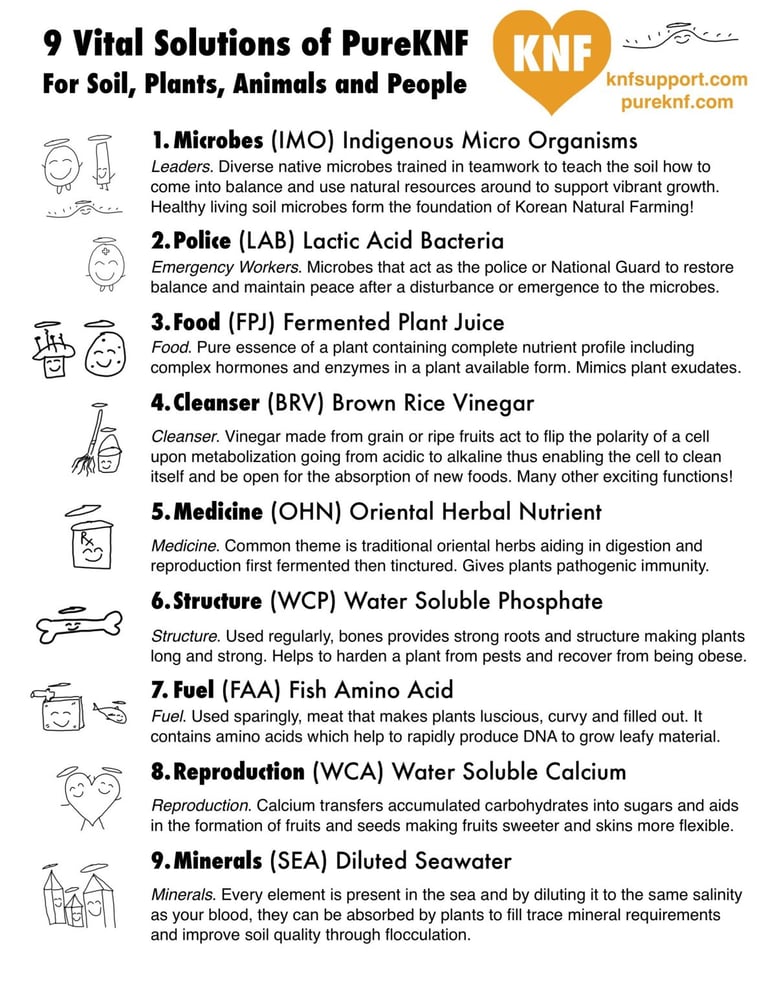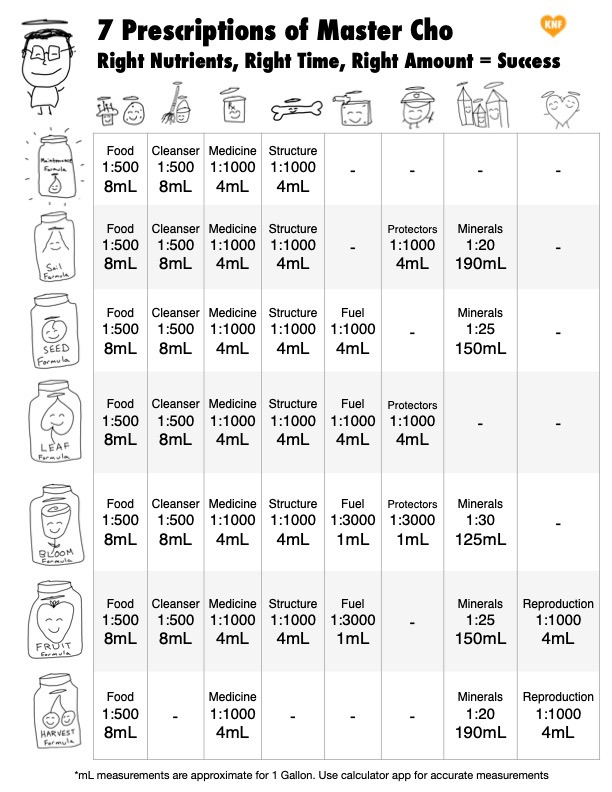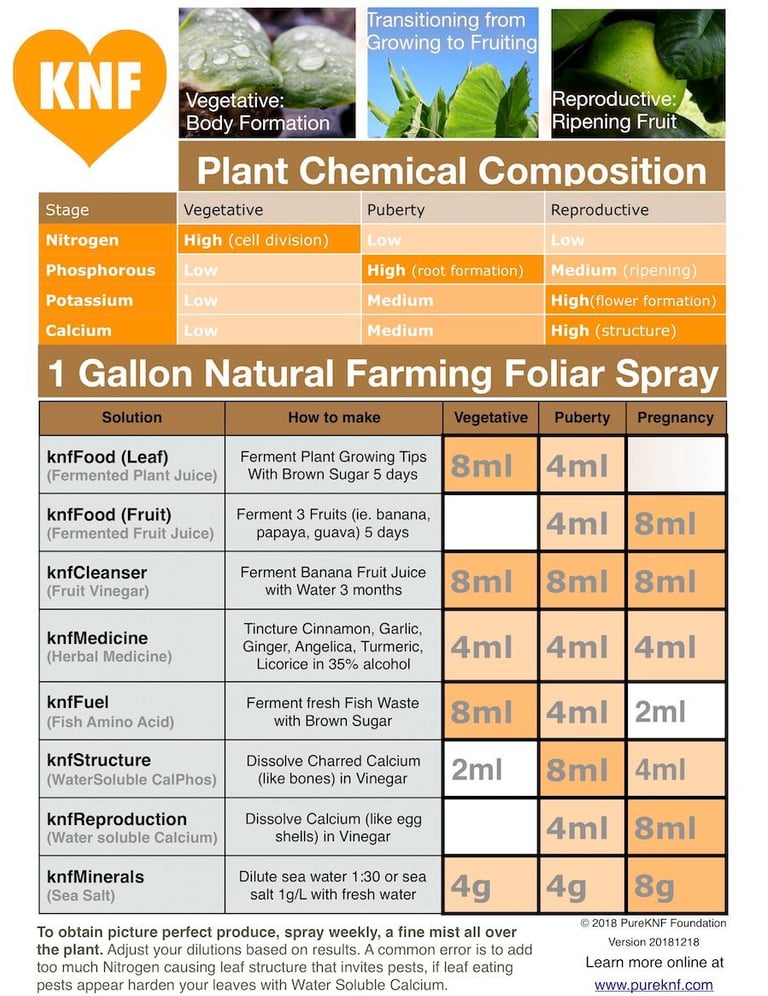JADAM Guide
Delving Deeper into JADAM Pesticide Practices:
JADAM's approach to pest control emphasizes prevention through a healthy ecosystem and natural deterrents. Here's a closer look at their key practices:
1. Fermented Plant Extracts (FPEs):
Specificity: FPEs target specific pests. Common examples include:
Garlic FPE: Repels aphids, thrips, and some fungal diseases.
Chili Pepper FPE: Deters caterpillars, beetles, and other chewing insects.
Nettle FPE: Effective against aphids, mites, and powdery mildew.
Preparation: The process involves fermenting readily available plant materials like weeds, herbs, or vegetable scraps with water, brown sugar, and indigenous microorganisms (IMO solution).
Application: Dilute FPEs with water and spray directly on affected plants or as a preventative measure.
2. Mineral Sprays:
Mode of Action: These sprays create a physical barrier or disrupt the life cycle of pests. Examples include:
Calcium Carbonate Spray: Acts as a desiccant, drying out soft-bodied insects like aphids.
Volcanic Ash Spray: Deters chewing insects with its abrasive texture.
Diatomaceous Earth: Dehydrates insects with its microscopic, sharp particles.
Application: Dust or spray the minerals directly on plants, focusing on areas with high pest pressure. Reapplication might be needed after rain.
3. Beneficial Insectary Plants:
The Ally Approach: JADAM encourages planting flowers and herbs that attract beneficial insects like ladybugs, lacewings, and hoverflies.
Habitat Creation: These beneficial insects predate on harmful pests, creating a natural balance in the garden ecosystem. Examples of beneficial insectary plants include:
Dill
Yarrow
Cosmos
Marigolds
4. Maintaining a Healthy Soil Ecosystem:
Strong Plants, Strong Defense: Healthy plants with a robust immune system are naturally more resistant to pests and diseases. JADAM's focus on creating a thriving soil microbiome with beneficial microbes contributes to plant health.
Composting: Composting kitchen scraps and yard waste provides nutrients for plants and attracts beneficial organisms that suppress pest populations.
Cover Cropping: Planting cover crops like legumes adds nitrogen to the soil, suppresses weeds, and creates habitat for beneficial insects.
Additional Tips:
Timing is Key: Apply FPEs and mineral sprays in the cooler parts of the day to minimize evaporation and heat stress on plants.
Rotate Strategies: Don't rely solely on one method. Rotate FPE types and combine them with other controls for long-term pest management.
Monitor and Observe: Regularly assess your garden to identify pest problems early and adjust your control methods as needed.
By implementing these JADAM pesticide practices, you can create a natural defense system for your garden, promoting a healthy ecosystem and minimizing reliance on chemical controls. Remember, JADAM is an ongoing learning process. Experiment, observe, and adapt your approach to find the most effective and sustainable solutions for your garden.








